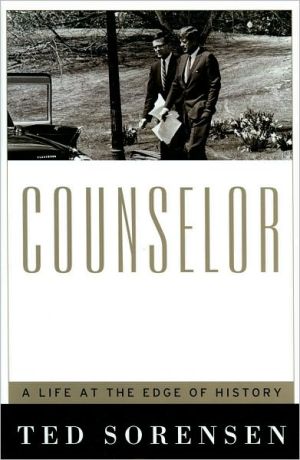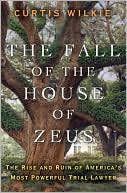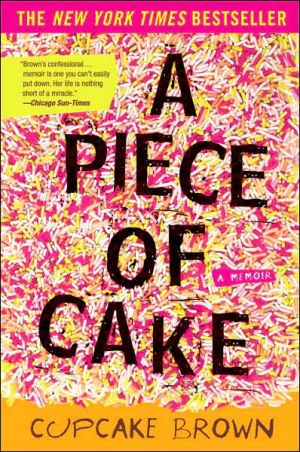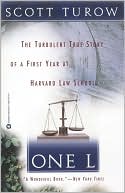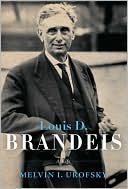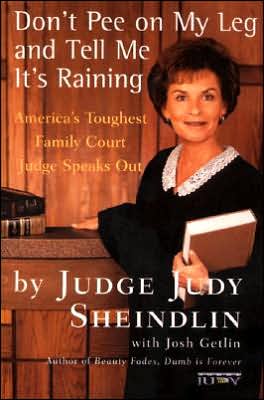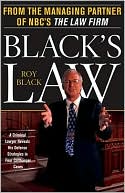Counselor: A Life at the Edge of History
In this gripping memoir, John F. Kennedy's closest advisor recounts in full for the first time his experience counseling Kennedy through the most dramatic moments in American history.\ Sorensen returns to January 1953, when he and the freshman senator from Massachusetts began their extraordinary professional and personal relationship. Rising from legislative assistant to speechwriter and advisor, the young lawyer from Nebraska worked closely with JFK on his most important speeches, as well as...
Search in google:
An intimate, deeply revealing memoir from John F. Kennedy's legendary right-hand man. In January 1953 the newly-elected Senator John F. Kennedy hired a young Nebraskan lawyer named Theodore Sorensen as his legislative assistant. Sorensen quickly rose up the ranks in JFK's senate office, from research aide to speechwriter to campaigner and advisor, eventually working closely with JFK on his speeches and books, including Profiles in Courage, and encouraging JFK's interest in the vice presidential nomination. Though JFK's pursuit of that nomination fell short at the 1956 Democratic Convention, he had emerged as a prominent national figure; and JFK and Sorensen traveled over the next three years to all fifty states exploring his prospects for the presidential nomination in 1960. Upon his election, Kennedy appointed Sorensen as his Special Counsel-a role that allowed him to serve as the President's own lawyer, speechwriter, and trusted confidante. Sorensen recounts in thrilling detail his experience advising JFK through some of the most dramatic moments in American history, including the Cuban Missile Crisis, when JFK requested that Sorensen draft a letter to Khrushchev at the most critical point of the world's first nuclear confrontation. Sorensen was immersed in everything from civil rights to the decision to go to the moon, and he also had a hand in JFK's most important speeches. Illuminating, revelatory, and utterly compelling, Counselor is the brilliant long-awaited memoir from a man who shaped the presidency and legacy of JFK as no one else could. The Barnes & Noble Review In the early 1950s, Ted Sorensen began work in Washington in the bowels of the bureaucracy, and wound up with two job offers on Capitol Hill: one from Senator Henry Jackson and the other from Senator John Kennedy. For a self-described policy wonk, the logical choice would have been Jackson, but Kennedy dazzled Sorensen, and the rest, as they say, is not only history but also a series of books about that history. Sorensen penned Decision-Making in the White House near the end of the Kennedy presidency and a full-length biography of JFK a few years after the assassination. What more is there for him to write about the Kennedy presidency?
Counselor A Life at the Edge of History \ By Ted Sorensen \ HarperCollins Publishers, Inc. Copyright © 2008 Ted Sorensen\ All right reserved.\ ISBN: 9780060798710 \ \ \ \ Chapter One\ Roots\ I was born in Lincoln, Nebraska, on the morning of May 8, 1928, Harry Truman's forty-fourth birthday. Harry took no notice of my arrival, being a busy county judge in Missouri at the time. More than twenty years later, I would make my way to Washington, D.C., where my first employer was the federal government over which he presided.\ I was born in a Catholic hospital, where my Jewish mother, Annis Chaikin Sorensen, valued the loving care of the nuns on the hospital staff. My father, Christian A. Sorensen ("C.A."), an insurgent Republican making his first run for public office that year, wrote to the head of America's "Hoover Booster Clubs": "Our family was increased this morning by another son. I am going to have a Republican club of my own." A journalist friend, referring to my birth as well as my father's campaign, wrote him from Ohio: "That, properly press-agented, ought to be good for a few thousand extra votes."\ There was no christening or baptism rite in the Unitarian Church which my parents attended. I was named at birth Theodore Chaikin Sorensen. Theodore Roosevelt, decades earlier, had led the progressive wing of the Republican Party to which my father belonged. When I was three years old I received a letter from Theodore Roosevelt Jr., the result of a chance encounter between him and my father; it noted that he and I had bothbeen named for the same great man. "From the commotion that the letter caused in the Sorensen household," C.A. wrote back, "[little Ted] knew that something unusual had happened which some way or other involved him."\ My mother, a pacifist who did not approve of Teddy Roosevelt's resort to military means for semi-imperialist objectives, always insisted that I was named not for the hero of San Juan Hill, but for the Greek words meaning "gift from God." An early feminist, she also insisted that her children receive her maiden name in addition to our father's last name—and the five of us were Chaikin Sorensen ever since; two names sufficiently unusual that we all became accustomed to misspellings. Books, newspapers, and magazines continue to do so; the New York Times has misspelled my name more than a hundred times in headlines and articles over the past fifty years. My mother's successor as editor of the University Journal, noting upon her departure that "Annis Chaiken resigned to become Mrs. C. A. Sorenson," misspelled both her maiden and her married name in the same sentence.\ Throughout my life, I have reflected on my good luck; but never was I more fortunate than on the day of my birth. Among the hundreds of thousands of babies born that day, I won what my fellow Nebraskan Warren Buffett has called the "great genetic lottery." My friend Khododad Farmanfarmaian was born that same day on the opposite side of the world, in Persia. He was ultimately forced to flee for his life from his native country, hidden in a Kurdish hay wagon. I was born into a country protected by the rule of law.\ I was raised by parents who were healthy, intelligent, college educated—and determined to see their children be the same. I was also fortunate to have been born in Nebraska. The city of Lincoln in my youth was small, lovely, and quaint; full of parks, stone churches, low buildings, small shops, and shaded streets. Although I heard rumors in grade school from older boys about an establishment called "Ma Kelly's," Lincoln was a wholesome place in which to grow up, the kind of small-town environment now seemingly gone forever. It was a city "in the middle of everywhere," as one Nebraska roadside sign proclaims. That message was confirmed for me as a small boy on a drive through central Nebraska with my parents, when we came upon a sign with two arrows, one pointing east, reading "New York World's Fair, 1,454 miles," and the other pointing west, reading "San Francisco World's Fair, 1,454 miles."\ Even after I moved to Washington, D.C., and thereafter traveled the world over, from Fujairah to Bujumbura, from Skopje to Singapore, I always cherished the city of my birth—the safe, peaceful, predictable environment that nurtured my childhood and laid the foundation of my life and career. Of all the cities in which I have lived—Lincoln, Washington, Boston, and New York—the air, water, and politics were always cleaner in Lincoln.\ I have occasionally wondered: Can a political career be affected by the name of one's hometown? Hope? Independence? What I do know is that growing up in a city named for Abraham Lincoln, whose stately statue stood by the state capitol in front of a wall on which his Gettysburg Address was inscribed, intensified my interest in the man, his life, and his speeches—speeches I have been quoting ever since.\ Nebraska remains in my heart the wonderful home that shaped so much of my youthful outlook. In those halcyon days, Nebraskans spoke plainly, dressed plainly, and opposed elites and sophisticates of any kind. They were mostly middle class with middle-of-the-road views, isolationists increasingly interested in stable overseas markets for Nebraska crops, churchgoers who supported traditional church-state separation (except for school prayer), community-minded pragmatists and businessmen who were skeptical of the far right as well as the far left, and opposed to big spending by politicians. They did not like politicians of either party who showed too little concern about truly big issues but hypocritically expressed too much concern over trivial issues.\ Yet Nebraska produced a host of political leaders with the courage to challenge conventional thinking—from the fiery political iconoclast and religious conservative William Jennings Bryan, to the civil rights leader Malcolm X, to Herbert Brownell and J. Lee Rankin of the Eisenhower Justice Department, who helped put courageous procivil rights judges on federal courts in the South.\ But the best known Nebraskan of all was not in politics—the late Johnny Carson. Johnny and I attended the University of Nebraska in the 1940s, where he was known campus-wide for his magic and ventriloquism acts. My brother Tom thought Johnny the brightest prospect in the Beginning Journalism class Tom taught. As graduation neared, Tom suggested that Johnny come work for him at the local radio station where Tom was news director. "Gee thanks, Mr. Sorensen," Johnny replied, "but I thought I would try Hollywood." "Hollywood?" Tom retorted in disbelief. "I'm talking about $55 a week!"\ \ \ Continues... \ \ \ Excerpted from Counselor by Ted Sorensen Copyright © 2008 by Ted Sorensen. Excerpted by permission.\ All rights reserved. No part of this excerpt may be reproduced or reprinted without permission in writing from the publisher.\ Excerpts are provided by Dial-A-Book Inc. solely for the personal use of visitors to this web site.\
Prologue 1Pt. 1 Lincoln, Nebraska, 1928-19511 Roots 132 Mother 223 Father 344 Childhood and Siblings 495 Education 596 Conscience 67Pt. 2 Washington, D.C., 1951-19647 Move to Washington, D.C. 898 Joining Senator Kennedy 959 Relationship with JFK 10210 My Perspective on JFK's Personal Life 11611 My Evolving Role on JFK's Senate Staff 12412 Speechwriting 13013 My Role in Profiles in Courage 14414 A Catholic Candidate for President? 15615 Senator Kennedy's Quest for the Presidency 16716 The 1960-1961 Presidential Transition 19817 Special Counsel to the President 20318 The President's Speeches 21519 President Kennedy's Ministry of Talent 22820 My Relations with Vice President Lyndon Johnson 24121 My Relations with President Kennedy's Family 25022 Kennedy's Civil Rights Initiative 27023 The Cuban Missile Crisis 28524 President Kennedy's Foreign Policy 31025 My Role in Press Relations 34126 Planning for JFK's Reelection and Second Term 34627 The Death of President Kennedy 36028 President Johnson's 1963 Transition 378Pt. 3 New York City, 1965-200729 Return to Private Life and Authorship 39730 New Life in New York 41031 Practicing Law 42232 My Continuing Involvement in Politics 45233 My 1977 Nomination for Director of Central Intelligence 48434 Family and Health 504Epilogue: Reflections, Regrets, and Reconsiderations 519Acknowledgments 533Index 535
\ Walter Isaacson"This is an important book, and it’s also a poignant one. As Jackie Kennedy once said of a speech that Ted Sorensen gave about her husband, it captures not only the soul of John Kennedy but also the soul of Sorensen. This clear-eyed but loving memoir is fascinating."\ \ \ \ \ Robert Caro"Ted Sorensen’s Counselor is that rare gift to history: an account of mighty events by a participant who stood at their heart, and a writer masterful enough to make us understand them as well."\ \ \ Barack Obama"Ted Sorensen’s words inspired a generation, and his counsel and judgment helped steer our nation through some of its most difficult hours. This gripping, candid memoir illuminates a revered era in American history. Sorensen has written a book that will be cherished for generations."\ \ \ \ \ Tom Brokaw"Ted Sorensen has given us a very welcome up close and personal view of life and politics at the side of John F. Kennedy. There are fresh insights and enduring lessons for this and future generations to study and embrace. And painful memories of what we lost."\ \ \ \ \ Jon Meacham"With eloquence and honesty, Sorensen takes us on a tour of many of the most important moments of the second half of the American Century, from who wrote ‘Profiles in Courage’ to the Cuban Missile Crisis to Dallas and its terrible aftermath. This is an illuminating and engaging book."\ \ \ \ \ Jack RosenthalSorensen, much more than a speechwriter, grew so close that some came to call him the deputy president. After the assassination, his act of mourning was to write Kennedy, a rigorous history. Now, four decades later, just as he turns 80 and seven years after a stroke that virtually destroyed his vision, he has written a different kind of book. Much of it is inescapably about J.F.K., and it includes some discreet disclosures and funny historical footnotes. But primarily this is a book, a touching book, about a mellower Sorensen\ —The New York Times\ \ \ \ \ Ted WidmerSorensen has written on Kennedy before—his 1965 opus, Kennedy, was one of the first to etch the legend into stone, and he has been writing ever since on subjects ranging from foreign policy to table tennis…But this book is different from his previous efforts. It is as much about Sorensen as Kennedy, more personal than anything he has written before. It is full of new information about both men, and in a world saturated with Kennedy stories both over-familiar and apocryphal, that's saying something…This book is instantly essential for any student of the period. It fills gaps in the historical record; it vividly conveys life inside the administration; and it generously dishes anecdotes\ —The Washington Post\ \ \ \ \ Publishers WeeklySorensen begins this audio sounding like a tired old man, with a gravelly voice and narrow vocal range; but as he becomes livelier and more engaged in his own narrative, listeners do too. A legislative assistant to Senator John F. Kennedy, Sorensen became JFK's speechwriter and closest advisor throughout the Kennedy presidency. Sorensen is most animated describing what he sees as the three major legacies of the Kennedy years: avoiding nuclear war through his handling of the Cuban missile crisis, supporting the civil rights movement, and competing with the Soviets in space. He deplores the Bush administration and ends with the fervent hope for new Democratic leadership to restore America's moral authority in the world and aspirations for a better, more equal life at home. This is a piece of history told by a passionate participant who is a fine writer and most engaging reader. A HarperCollins hardcover. (June)\ Copyright © Reed Business Information, a division of Reed Elsevier Inc. All rights reserved.\ \ \ \ \ The Barnes & Noble ReviewIn the early 1950s, Ted Sorensen began work in Washington in the bowels of the bureaucracy, and wound up with two job offers on Capitol Hill: one from Senator Henry Jackson and the other from Senator John Kennedy. For a self-described policy wonk, the logical choice would have been Jackson, but Kennedy dazzled Sorensen, and the rest, as they say, is not only history but also a series of books about that history. Sorensen penned Decision-Making in the White House near the end of the Kennedy presidency and a full-length biography of JFK a few years after the assassination. What more is there for him to write about the Kennedy presidency? \ Plenty, as it turns out, although in Counselor Sorensen cautions at the outset that this is not a book for historians or presidency scholars: it contains no footnotes and does not purport to be a full narrative of events. But contributing to the scholarly literature is not what Sorensen has in mind: he wants to come to terms with Kennedy's legacy and his own.\ Sorensen offers 100 pages on his early life in Lincoln, Nebraska. His father was Danish and Protestant, a political progressive and workaholic lawyer who nevertheless forged close ties with his five children. His mother was Russian-Jewish (the "C" that is Sorensen's middle initial stands for Chaikin), a wonderfully caring woman -- until her midlife depression turned the family upside down. Yet they all held on, supporting each other and taking advantage of the heady midwestern cultural mix: high school debate team, Unitarian fellowship, summer camp, and campaigns for progressive candidates. Sorensen narrates his youth with understated middle-American wit, which includes one harrowing tale of the near drowning of a camper in his charge and another about talking his way (he was a champion debater) out of a thrashing by the jealous boyfriend of a girl he had just kissed -- on the front porch, of course.\ When Mr. Sorensen goes to Washington, he winds up as Kennedy's speechwriter and go-to staffer. Sorensen does not go over most of the ground he covered expertly in prior works, though there are interesting chapters on civil rights, the Cuban Missile Crisis, and Kennedy's foreign policy. What he does instead, and to great effect, is write about his relationships with Kennedy and the Kennedys, Lyndon Johnson, cabinet secretaries, White House staffers, and the media. He shares his surprises with us (such as learning after he left the administration that key administration operative Kenny O'Donnell had it in for him), his triumphs (writing key speeches for JFK and settling significant issues), and his failures. He quotes at length from a memo written by White House aide Ralph Dungan that refers to "Ted's oppressive personality...his sharpness of manner, his brusqueness, impolite, not the warmest human being..." Sorensen's response: "Hopefully I've learned my lesson. I schmooze more now with my friends and I like it. I regret that I did not discover it in my youth, when my abruptness appeared antisocial, offending some and unnecessarily earning enemies."\ Each chapter offers something to delight, amuse, or instruct. The best instruction comes in the pages on speechwriting. Sorensen was one of the best of the White House wordsmiths, and he offers us six basic rules (along with examples from his own and others' speech drafts). He comes from the KISS (keep it simple, stupid) school yet appreciates a finely crafted sentence. In the current primary season, Clinton and Obama have sparred about the importance of rhetoric: Sorensen offers a balanced perspective. "Saying so doesn't make it so," he cautions. And yet, "the right speech on the right topic delivered by the right speaker," he observes, "can ignite a fire, change men's minds, open their eyes, alter their votes, bring hope to their lives, and, in all these ways, change the world. I know. I saw it happen." In another insightful section Sorensen describes the advantages of "less is more" when it comes to the size of the White House staff: because he was a counselor, speechwriter, liaison, and Jack's jack of all trades, he could see the big picture and act without going through bureaucratic layers. FDR's staff was small, had a "passion for anonymity," and also got things done. Sorensen approvingly quotes Roosevelt's observation about his aide Harry Hopkins: of all the men who came through the Oval Office, FDR felt, Hopkins was the only one who wanted nothing but to serve the president.\ There is one caution to note here: Sorensen omits some important points when he writes about the Cuban Missile Crisis. Did Kennedy make a deal with Khrushchev involving a trade of American missiles in Turkey for Russian missiles in Cuba? The standard accounts, written shortly after the crisis, focused on a visit Bobby Kennedy made to Soviet ambassador Anatoly Dobrynin. Bobby supposedly "assured" Dobrynin that once the crisis ended, the U.S. would remove its missiles, but the early accounts insisted that there was no explicit trade or "deal," leaving the American people with the impression, in Secretary of State Dean Rusk's phrase, that the crisis had been "eyeball to eyeball, and the other fellow blinked." Subsequent scholarship indicates that there was an explicit arrangement about removal of American missiles (whether or not to call it a "deal" is just semantics). Moreover, the Soviets and Americans agreed that this arrangement would not be made public, as Sorensen himself has previously revealed in connection with his editing of Bobby Kennedy's Thirteen Days, an account of the Cuban Missile Crisis published after RFK's death. "I was the editor of Robert Kennedy's book," he later explained to scholars, "and his diary was very explicit that this was part of the deal; but at that time it was still a secret even on the American side, except for the six of us who had been present at [an Oval Office] meeting. So I took it upon myself to edit that out of his diaries..." In Counselor, Sorensen says, "There was no deal," and he barely mentions his editorial decisions.\ Sorensen, an intensely private man, has given us more than glimpses of his personal life; he's shown the great personal cost that serving at the seat of power demanded. But don't cry for the author, who in recent years has had a stroke and a bout with prostate cancer: read the final, lyrical chapters, in which a man makes sense of his life and ours, coming to "a kind of closure after all this time" about the Kennedys while continuing "to keep on surviving, coping, laughing, writing, speaking, serving -- maybe another six years, maybe sixteen -- watching my grandchildren and their children grow." --Richard Pious\ Richard Pious is Adolph and Effie Ochs Professor at Barnard College and the Graduate School of Arts and Sciences, Columbia University. He is the author of The President, Congress and the Constitution (1984) and The War on Terrorism and the Rule of Law (2006) among other works. He has recently published articles on military tribunals, interrogation of detainees, warrantless surveillance and war powers.\ \ \
